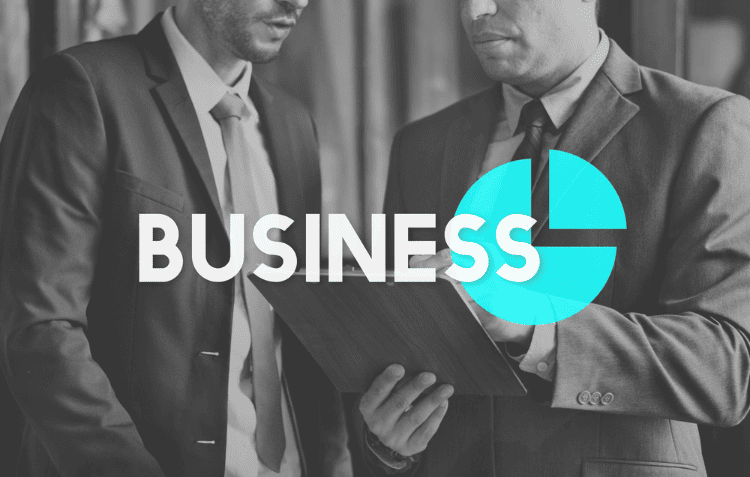How Much Are Group Coaching Rates for Business Coaches in 2025?
In 2025, businesses are increasingly relying on group coaching to improve leadership skills, enhance team collaboration, and drive overall success. Unlike one-on-one coaching, group coaching fosters shared learning, enabling professionals to exchange insights and develop collective strategies. Companies recognize its value in creating high-performing teams and achieving long-term growth.
However, one common question remains: How much does group coaching cost? The rates for group coaching vary based on several factors, including the coach’s experience, group size, industry, and program duration. Some organizations invest in premium coaching services, while others seek cost-effective options that still deliver results.
This article breaks down how much are group coaching rates for business coaches in 2025, providing insights into pricing structures, influencing factors, and how to maximize your investment. Whether you’re a small business owner or a corporate leader, understanding these costs will help you make informed decisions. Keep reading to explore the latest trends and pricing insights.
Understanding Group Coaching in 2025
Group coaching has become a cornerstone for professional growth, enabling teams to learn collectively and improve performance. As businesses continue to invest in leadership and skill development, the demand for structured coaching programs is rising. In 2025, organizations are increasingly adopting group coaching models to achieve strategic goals cost-effectively.
What is Group Coaching?
Group coaching is a structured development process where a coach works with multiple individuals simultaneously to enhance their skills, mindset, and performance. Unlike one-on-one coaching, which focuses on personalized guidance, group coaching fosters collaborative learning and peer-driven support.
Benefits of Group Coaching:
- Cost-Effectiveness: Group sessions are more affordable than individual coaching, making leadership development accessible to more businesses.
- Shared Learning: Participants benefit from diverse perspectives, gaining insights from peers facing similar challenges.
- Improved Team Dynamics: Coaching fosters communication, trust, and alignment, helping teams work more effectively toward common goals.
By offering a balance of mentorship, accountability, and shared experiences, group coaching is becoming a preferred approach for business growth in 2025.
The Growing Demand for Group Coaching
The demand for group coaching has surged as businesses seek scalable solutions for leadership and professional development. Companies recognize that developing employees collectively leads to better collaboration, higher engagement, and a stronger company culture.
Market Trends
- Organizations are shifting from traditional training methods to group coaching due to its interactive and results-driven approach.
- The rise of remote and hybrid work has increased the need for virtual group coaching programs.
- Businesses are prioritizing soft skills development, such as leadership, communication, and emotional intelligence.
Supporting Data
The coaching industry is set to grow significantly, with market projections reaching $7.31 billion in 2025 (Source). This rise is driven by an increased focus on employee well-being, leadership development, and business agility. With organizations investing more in structured coaching programs, group coaching is expected to play a pivotal role in professional development strategies.
Factors Influencing Group Coaching Rates
Several elements determine the cost of group coaching for business coaches. Pricing structures vary based on the coach’s experience, session duration, participant count, and industry-specific needs. Businesses should evaluate these factors to choose a program that aligns with their budget and objectives.
Experience and Reputation of the Coach
The expertise and reputation of a business coach significantly influence pricing. Seasoned coaches with proven track records, certifications, and high-profile clients often charge premium rates due to their credibility and impact.
Expertise Impact
- Coaches with extensive experience in leadership development or industry-specific coaching command higher fees.
- Those with ICF (International Coaching Federation) credentials or other professional certifications often have structured pricing tiers.
Case Study: High-Value Coaching
For instance, Marshall Goldsmith, a globally recognized executive coach, charges premium rates due to his success in coaching Fortune 500 leaders. Similarly, top business coaches offering group coaching packages can range from $5,000 to $50,000 per program, depending on their reputation and clientele.
Group Size and Duration

The number of participants and the length of a group coaching program directly impact pricing. Larger groups may lower the per-person cost, while longer programs often require a higher investment.
Pricing Dynamics
- Small groups (5-10 people): Higher per-person rates due to personalized attention.
- Large groups (15-30 people): Lower per-person rates but less individual interaction.
- Short programs (4-6 weeks): Ideal for skill-focused training, often costing $500-$1,500 per participant.
- Longer programs (3-6 months): More in-depth coaching, ranging from $3,000-$10,000 per participant.
Example
A six-month leadership coaching program for a group of 10 might charge $1,200 per participant per month, while a three-month program for 20 participants could cost $800 per person due to economies of scale.
Industry and Organizational Needs
Different industries require tailored coaching solutions, affecting pricing structures. For example, a tech startup might need coaching focused on agility and innovation, while a corporate firm may prioritize executive leadership development.
Customized Programs
- Tech & Startups: Emphasize innovation, adaptability, and creative problem-solving.
- Corporate Leadership: Focus on executive presence, decision-making, and organizational strategy.
- Healthcare & Nonprofits: Require coaching for resilience, communication, and ethical leadership.
Example
A tech company investing in agile leadership coaching may pay $15,000 for a three-month program, whereas a law firm focusing on executive decision-making coaching could spend $25,000 for a more specialized curriculum.
Typical Group Coaching Rates in 2025
Group coaching rates vary significantly based on factors like coach experience, group size, and industry demands. Understanding these pricing dynamics helps businesses budget effectively for leadership development and team growth. Below is a breakdown of the latest pricing trends in group coaching for 2025.
General Pricing Overview
Current Rates:
The cost of group coaching depends on several factors, including the coach’s expertise, program duration, and the specific needs of the participants. Generally, businesses can expect to pay between $1,000 to $4,000 per participant for a six-month program. Shorter programs (3–4 months) may cost around $750 to $2,500 per participant. More specialized or high-profile coaching programs can go beyond $5,000 per participant.
Supporting Data:
According to industry research, corporate group coaching rates have steadily increased due to growing demand. A report from Action Learning states that executive coaching fees range from $200 to $1,000 per hour, and group coaching services typically fall within the lower range per participant due to shared costs. High-ticket group coaching programs, especially those focusing on executive leadership, often command premium rates, particularly in large organizations.
Variations Across Industries
Industry-Specific Rates:
Group coaching rates differ across industries based on sector priorities and budget allocations. For instance, tech startups and financial services firms often allocate more for professional development than non-profits or small businesses.
Example:
- Financial Services & Tech Companies: $3,000–$5,000 per participant for six months, emphasizing leadership and innovation.
- Healthcare & Education: $1,500–$3,500 per participant, focusing on team collaboration and crisis management.
- Non-Profits & Small Businesses: $750–$2,000 per participant, typically more budget-conscious but still prioritizing skills development.
Companies in highly competitive industries view coaching as a strategic investment, while others may opt for shorter, lower-cost coaching engagements to maximize their budget.
Impact of Delivery Methods
In-Person vs. Virtual:
Group coaching delivery methods impact pricing significantly. In-person coaching tends to be 25-50% more expensive due to venue costs, travel, and logistical requirements. A standard onsite group coaching session for executives may range from $5,000 to $15,000 per session, depending on the group size and location.
Trend Insight:
Virtual group coaching has gained popularity due to its cost efficiency and accessibility. Online coaching programs typically cost 20-30% less than in-person sessions while still offering interactive and personalized experiences. Platforms like Zoom, Microsoft Teams, and specialized coaching apps have made virtual coaching more engaging and effective.
Hybrid coaching, combining virtual and in-person elements, is emerging as a preferred model, offering flexibility while maintaining personalized interaction. Organizations looking for cost-effective solutions often opt for virtual coaching, while those prioritizing hands-on engagement may invest in in-person experiences.
Maximizing Value from Group Coaching Investments

Investing in group coaching can drive leadership development, team cohesion, and organizational success. However, to maximize ROI, businesses must ensure readiness, select the right coach, and measure effectiveness effectively. Below are key strategies to get the best value from group coaching.
Assessing Organizational Readiness
Preparation Steps:
Before investing in group coaching, organizations should evaluate their readiness and objectives. Consider the following steps:
- Identify key areas for development (leadership, communication, productivity).
- Assess team engagement levels and openness to coaching.
- Ensure leadership buy-in to drive participation and accountability.
Checklist:
- Team Dynamics: Are employees collaborative and open to feedback?
- Leadership Support: Does management actively endorse coaching initiatives?
- Clear Objectives: Are measurable goals set for coaching outcomes?
- Budget Considerations: Is there adequate financial allocation for sustained coaching efforts?
A well-prepared organization will achieve higher engagement and impactful results, making group coaching a valuable long-term investment.
Selecting the Right Coach
Selection Criteria:
Finding the right group coach is crucial for program success. Companies should evaluate coaches based on the following:
- Industry Expertise: Coaches with experience in the relevant sector deliver more tailored insights.
- Coaching Credentials: Look for certifications from bodies like ICF (International Coaching Federation).
- Proven Track Record: Success stories and testimonials validate effectiveness.
Tips:
- Request a discovery session to assess the coach’s approach.
- Evaluate their coaching style to ensure alignment with team needs.
- Seek feedback from previous clients on engagement and results.
By choosing a coach who aligns with business goals and understands industry-specific challenges, organizations can achieve meaningful transformation and measurable success.
Measuring Coaching Effectiveness
Evaluation Metrics:
Assessing the impact of group coaching is essential to gauge ROI and effectiveness. Key measurement strategies include:
- Employee Surveys: Gather feedback on personal and professional growth.
- Performance Metrics: Track productivity improvements and leadership capabilities.
- Engagement Levels: Monitor attendance, participation, and team collaboration post-coaching.
Examples:
Organizations can measure coaching success through:
- Employee Engagement Scores: Pre- and post-coaching assessments to track progress.
- Productivity Metrics: Compare KPIs before and after coaching implementation.
- Goal Achievement Rate: Track how many coachees reach defined leadership or skill milestones.
Regular assessments ensure that coaching initiatives deliver tangible benefits, allowing companies to refine programs and optimize impact.
Conclusion
Group coaching rates in 2025 vary based on industry, delivery method, and coach experience. Fees typically range from $1,000 to $4,000 per participant for a six-month program, with some premium coaching engagements exceeding $5,000 per participant.
Organizations should evaluate readiness, carefully select a qualified coach, and implement measurement frameworks to maximize coaching impact. Virtual coaching offers a cost-effective alternative, while in-person coaching delivers hands-on engagement at a higher price point.
While pricing is a major factor, long-term benefits outweigh initial costs. Investing in high-quality coaching drives leadership excellence, improves team collaboration, and boosts organizational performance. Companies that strategically implement group coaching see significant ROI, making it a worthwhile investment in professional growth.
FAQs
What factors influence group coaching rates for business coaches?
Group coaching rates are influenced by the coach’s experience, program length, group size, industry focus, and delivery method (in-person vs. virtual). Experienced coaches and specialized programs typically command higher fees.
How do group coaching rates compare to one-on-one coaching?
Group coaching is generally more cost-effective than one-on-one sessions. While individual coaching can range from $100 to $1,000 per hour, group sessions often cost less per participant due to shared expenses.
Are virtual group coaching sessions less expensive than in-person ones?
Yes, virtual group coaching sessions are typically more affordable. They eliminate costs associated with travel and venue rentals, making them a cost-effective alternative to in-person sessions.
How do group coaching rates vary across different industries?
Rates can vary significantly by industry. For example, financial services and tech companies may invest more in coaching, with rates ranging from $3,000 to $5,000 per participant for a six-month program, while non-profits might spend between $750 and $2,000 per participant.
What is the typical duration of a group coaching program?
Group coaching programs commonly last between three to six months, with session frequency varying from weekly to monthly, depending on the program’s objectives and structure.







